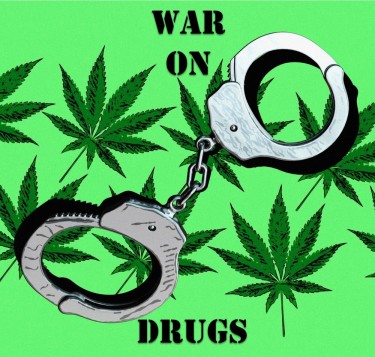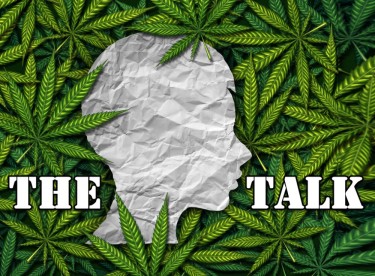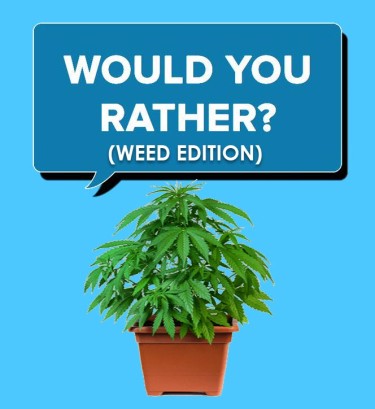Cannabis News
Social Media Companies Required to Report Cannabis Users to the DEA?
Published
10 months agoon
By
admin

The Drug War in the Digital Era & Why Your elected Officials hate you!
In the digital era, the War on Drugs has taken on a new dimension, raising profound concerns about privacy, civil liberties, and the abuse of power by elected officials.
For decades, this relentless war has been waged against drug use, leading to a massive prison population in the United States.
The very people who advocate for this draconian approach are complicit in violating our human rights and undermining the principles of freedom and justice. And who are these people that advocate for these laws? I’m so glad “I” asked, allow me to explain.
In this opinion piece, we explore how the War on Drugs has evolved in the digital age, how it infringes upon our rights, and why it’s high time to rethink this failed policy (obviously).
The failed war on drugs is evolving…maybe
The War on Drugs, with its heavy emphasis on punitive measures and mass incarceration, is not supported by science or evidence-based approaches. There is no credible research to suggest that one can “arrest” their way out of a drug problem. Rather than addressing the underlying issues of addiction and substance abuse, this failed policy perpetuates a cycle of punishment that does little to promote public health or address the root causes of drug use.
One of the most concerning aspects of the War on Drugs is its role in recreating a prison population that is owned and controlled by the state. The 13th Amendment to the U.S. Constitution, passed in 1865, abolished slavery and involuntary servitude, “except as a punishment for a crime.” This exception has been exploited to target and incarcerate individuals, particularly those from marginalized communities, for non-violent drug offenses. The incarceration of millions of people for drug-related offenses has created a modern form of legalized slavery, where individuals lose their liberty and freedom due to the criminalization of drug use.
Moreover, the War on Drugs has given law enforcement unprecedented power to encroach on other freedoms, such as search and seizure, surveillance, and asset forfeiture. RICO (Racketeer Influenced and Corrupt Organizations) laws have been used to target drug offenders and strip them of their assets, often without due process or fair trial. This erosion of civil liberties raises significant concerns about the abuse of power and the erosion of the principles upon which our nation was founded.
Now, while I have spoken a lot about the past of the War on Drugs, it’s time today to take a look at a proposed future…if passed.
The Digital War on Drugs
The Cooper Davis Act, as reported by MarijuanaMoment, has raised significant concerns about privacy, civil liberties, and the potential for abuse in the digital era. The act proposes amending the Controlled Substances Act (CSA) to require social media companies and other communication service providers to report instances of suspected drug activities, such as sales, manufacturing, or possession with intent to distribute fentanyl, methamphetamine, prescription opioids, and counterfeit drugs. While the bill does not specifically target marijuana and other controlled substances, it creates a landscape of mass surveillance that could have far-reaching implications on individual freedoms and privacy.
The article highlighted the stance of Senator Ron Wyden, who firmly opposed the bill, arguing that it would perpetuate the discriminatory consequences of the War on Drugs. He argued that the legislation’s broad mandate would require platforms to scan user communications for any content that could be interpreted as related to drug sales or use, leading to a significant risk of unwarranted surveillance and referrals for prosecution. Wyden expressed concerns that this approach could disproportionately impact communities of color, replicating the historical patterns of racial bias seen in drug law enforcement.
The Cooper Davis Act, while claiming it does not “require” companies to actively search for drug-related content, imposes substantial fines for failure to report such content to the Drug Enforcement Administration (DEA) if the companies become aware of it. This potential for financial penalties places significant pressure on service providers to monitor user communications and report any suspected activities, regardless of their accuracy or legitimacy.
Furthermore, the bill allows social media companies to report to the DEA based on a “reasonable belief” that a user is involved in prohibited drug activities. This broad and vague criterion further adds to the risk of unwarranted surveillance and referrals, as it leaves ample room for subjective interpretations and potential misuse of the reporting system.
In the digital era, where technology plays an integral role in our daily lives, the Cooper Davis Act raises alarming possibilities of mass surveillance. Imagine engaging in casual conversations with friends or acquaintances about a cannabis convention or a marijuana-related event, only to be unknowingly spied on by law enforcement at the bidding of the government. The very technology that has become an essential part of our existence, connecting us to the world, could be turned against us, potentially violating our privacy and rights.
This scenario paints a disconcerting picture of a society where private conversations, online discussions, and personal interactions are subject to scrutiny and potential intrusion by government agencies. The Act’s emphasis on encouraging social media platforms and communication service providers to report any suspected drug activities creates a pervasive culture of suspicion, where individuals may hesitate to express their opinions freely and openly, fearing unwarranted consequences.
The impact of such surveillance on personal freedom and autonomy is profound. The right to engage in private conversations and express oneself without fear of surveillance is a cornerstone of democratic societies. When individuals feel compelled to self-censor or avoid discussing certain topics due to potential monitoring, the very essence of freedom of speech is compromised.
Moreover, the Cooper Davis Act could potentially lead to the surveillance and targeting of individuals for simple drug possession discussions. Innocent people may be referred for investigation and prosecution based on misinterpretations or misunderstandings of their conversations. This scenario further underscores the risks associated with mass surveillance and the potential for overreach and abuse of power.
It’s not as if we haven’t seen the US government use their “special powers” to push agendas that do not benefit the population. Of course, we’re all already aware that we are being surveilled. In fact, some stoners believe that if you’re not on a list somewhere – you’re not living your best life!
What can be done?
Combating the oppressive policies of the War on Drugs from the comfort of our homes may seem like a daunting task, but there are several powerful ways individuals can make a difference and contribute to change. While revolution may not be the immediate solution, collective efforts and grassroots actions can have a significant impact on dismantling unjust drug laws and advocating for more equitable policies.
One of the most accessible ways to participate in the fight against the War on Drugs is through civic engagement. Individuals can call, email, or write to their elected representatives to express their concerns and opposition to legislation like the Cooper Davis Act. By voicing their opinions, constituents can remind their representatives that they are elected to serve the people and not the interests of corporations or law enforcement agencies.
Education is another potent tool in challenging the War on Drugs. People can engage in conversations with friends, family, and community members to raise awareness about the harmful consequences of drug criminalization. By disseminating accurate information and debunking the myths surrounding drugs, individuals can challenge the stigmatization and fear-based narratives that have perpetuated the War on Drugs for decades.
Inventing new slang for drug-related subjects might seem like a lighthearted approach, but language plays a powerful role in shaping perceptions and cultural attitudes. Creating new terminology can help shift the narrative away from negative and punitive associations and towards more empathetic and compassionate views of drug use and its impact on individuals and communities.
While Nixon was the president responsible for the passage of the Controlled Substances Act, the ramifications of this law continue to impact lives to this day. It is essential to understand the historical context of such legislation to recognize its roots in systemic racism and the influence of corporate interests. Although direct evidence of pharmaceutical companies’ involvement may be speculative, it is not unreasonable to be vigilant about potential conflicts of interest between corporations and lawmakers.
To combat the system, individuals must come together and build communities that reject oppressive ordinances and draconian policies. This grassroots approach can start at the local level, with town by town and city by city movements advocating for drug policy reform. Local initiatives can include advocating for decriminalization, supporting harm reduction programs, and demanding greater transparency and accountability from law enforcement agencies.
Additionally, supporting organizations and advocacy groups focused on drug policy reform can amplify individual efforts. Joining forces with like-minded activists and experts can create a more substantial collective voice that demands change on a larger scale. These organizations often engage in lobbying efforts, conduct research, and mobilize communities to influence policymakers and public opinion.
As the war on drugs relies heavily on punitive measures, advocating for alternatives to incarceration is crucial. Supporting diversion programs, restorative justice practices, and drug courts can lead to more compassionate and effective approaches to addressing drug-related issues. These programs focus on treating drug use as a public health concern rather than a criminal offense, fostering rehabilitation and reintegration into society.
Finally, individuals can use their voting power strategically. Supporting candidates who prioritize drug policy reform and social justice can create a path towards legislative change. Researching candidates’ positions and records on drug-related issues can inform decisions at the ballot box, ensuring that elected officials are accountable to their constituents’ interests and well-being.
While revolution may be a distant goal, the collective actions of individuals can create meaningful progress in dismantling the War on Drugs. By challenging oppressive laws, fostering education and understanding, and supporting alternative policies, people can work towards a more just and equitable future. Together, we can shift the narrative surrounding drug use, address the root causes of the drug crisis, and build a society that values compassion, freedom, and individual rights.
MORE ON THE FAILED WAR ON DRUGS, READ ON…
HOW THE WAR ON DRUGS TURNS YOU INTO PROPERTY OF THE STATE
You may like
-


Is Your Kid Smoking or Vaping Weed?
-


Press Release: PsychedelicNewsWire Named Official Media Sponsor of the 4th Annual Psychedelic Therapeutics and Drug Development Conference
-


Memorial Day’s best weed, prerolls, carts, and more 2024
-


Naps Done Right Can Make a Huge Difference
-


Michigan is selling more cannabis, but retailers are taking in less money
-


Can Marijuana Give A Break From All The Drama


Marijuana for recreational and medicinal purposes is becoming more widely available and simpler to purchase every day. Furthermore, opinions about the drug’s possible risks have changed as a result of recent legislative modifications, especially among young teenagers.
While proper use of marijuana can offer health benefits for specific conditions, inappropriate use can lead to a variety of problems. It can severely impact health, situational judgment, memory, coordination, and more.
Given that marijuana has rapidly become a much more commonly used drug among young people, it is crucial to recognize the main signs of marijuana use in teens to ensure their safety and well-being.
Statistics on Child Marijuana Use
Though the stats may surprise you, marijuana is the most often used narcotic among teenagers. Among children between the ages of 12 and 17, the National Center for Drug Abuse reports that:
– Nearly 44% have tried marijuana in their lifetime, up from 37% in 2019.
– 35% used marijuana in the past year.
– Almost 7% of 12th graders use marijuana daily.
Regretfully, eighth, ninth, and tenth kids are exposed to an alarmingly high level of marijuana. Early usage is problematic since those who start using earlier have a greater likelihood of heavier use later in life.
How THC Impacts the Brain
The active element in cannabis is tetrahydrocannabinol (THC), which produces the “high” associated with marijuana. THC can be ingested by smoking cannabis flowers, vaping concentrated forms, or eating THC-infused foods. THC impacts the brain by interfering with processes that are typically controlled by naturally existing endocannabinoids.
The brain grows from birth to the mid-twenties, and consuming marijuana at a young age can interrupt this important development. Early marijuana usage appears to influence brain development, according to recent research.
The effects of cannabis on the brain are extensive:
– Executive Functioning: Skills necessary for daily life, such as focus, memory, problem-solving, planning, reasoning, and emotional control, are compromised.
– Working Memory: The ability to remember and later recall or use information is reduced.
– Lingering Effects: The impact of cannabis use can last well beyond the period of intoxication. Even if someone smokes on a weekend, the effects can persist into the following week. Regular use leads to a persistent decline in executive functioning, working memory, and other cognitive areas.
Cannabis use interferes with the brain’s circuits, and it remains uncertain whether the brain can fully recover if marijuana use is discontinued.
Signs Your Child is Using Cannabis
Recognizing if your child is using marijuana can involve noticing various signs, including:
– Hair or clothes with a pungent marijuana smell
– Red or bloodshot eyes
– Delayed reaction times
– Mood swings
– Laziness and tiredness
– Presence of marijuana-related paraphernalia
– Paranoia or anxiousness
– Increased hunger or “munchies”
Visible Signs of Marijuana Use
Shortly after usage, marijuana’s effects can be perceived both visually and aromatically. It is very suggestive of marijuana usage if your adolescent returns home with red or bloodshot eyes. Physical and mental delays in response times and problems with muscular coordination are further symptoms.
Cannabis has a unique fragrance that is another warning clue; it is frequently characterized as having a pungent, musky smell like that of a skunk. On your teen’s clothes, this odor might cling rather readily.
Changes in Emotional State
The body and mind might react differently to different strains or varieties of marijuana. Teenage marijuana usage is frequently indicated by mood swings, lethargy, and general exhaustion in their day-to-day demeanor. Depending on how their body responds, they might also seem nervous and exhibit an elevated heart rate.
Your youngster may struggle to focus at job, school, or home as a result of these changes, which frequently results in subpar performance and grades. This decrease might be a clear indication that marijuana use has turned into an addiction.
Educating Your Child about Marijuana
Regardless of whether you suspect your child is using cannabis, it’s important to discuss it. Parents and caregivers should talk about all types of dangerous substances, including nicotine, alcohol, and cannabis, with children as early as elementary school.
It’s important to be proactive and talk to your youngster about the risks associated with marijuana. These talks may serve to deter marijuana usage or at the very least postpone the initial experience until the mid-20s, when the brain is more completely matured.
As teenagers become older, their need for independence grows, which makes it harder for parents to control their actions. Still, parents need to persevere. It is significantly more dangerous to consume cannabis than it is uncomfortable to have a difficult talk.
Addressing Marijuana Use and Seeking Help
For teenagers’ wellbeing, it is essential to identify and treat marijuana usage. It’s crucial to handle the matter with compassion and support if you think your child may be consuming marijuana. Discussing its usage, the rationale behind it, and any possible hazards should come first in an honest and nonjudgmental discussion. Give your child access to a secure environment where they may talk about their thoughts and experiences. You can gain insight into their viewpoint and advice on how to make better decisions by having this discussion.
If using marijuana has become troublesome, you might think about getting professional assistance. Resources like therapists, counselors, and specialty treatment programs can provide your kid with the help they need. These specialists are qualified to deal with underlying problems including stress, peer pressure, or mental health disorders that may be causing drug use. Early intervention can stop the usage from getting worse and support your kid in creating healthy coping mechanisms. Getting a medical expert involved can also offer a methodical way to handle the matter and guarantee that your adolescent gets the treatment they need.
It is critical to be involved and supportive throughout the process. Encourage your kid to participate in activities that support their well-being and offer positive reinforcement for good habits. Stay educated about the services available in your area, and consider joining support groups for parents struggling with similar challenges. You can assist your child in navigating this difficult period and promote a healthy, drug-free future by keeping open communication and obtaining expert support as required.
Bottom Line
Parents need to be vigilant about the signs of marijuana use in their children, given its prevalence among teenagers and its potential impact on their health and development. Early detection, open communication, and seeking professional help if needed are key strategies for addressing marijuana use in adolescents. By providing support, education, and access to resources, parents can help guide their children towards healthier choices and a drug-free future.
HOW TO HAVE “THE TALK” WITH YOUR KIDS, READ ON..
Cannabis News
How Did Hidden Leaf Cannabis Become the Leader of the Ontario Marijuana Market?
Published
2 days agoon
May 17, 2024By
admin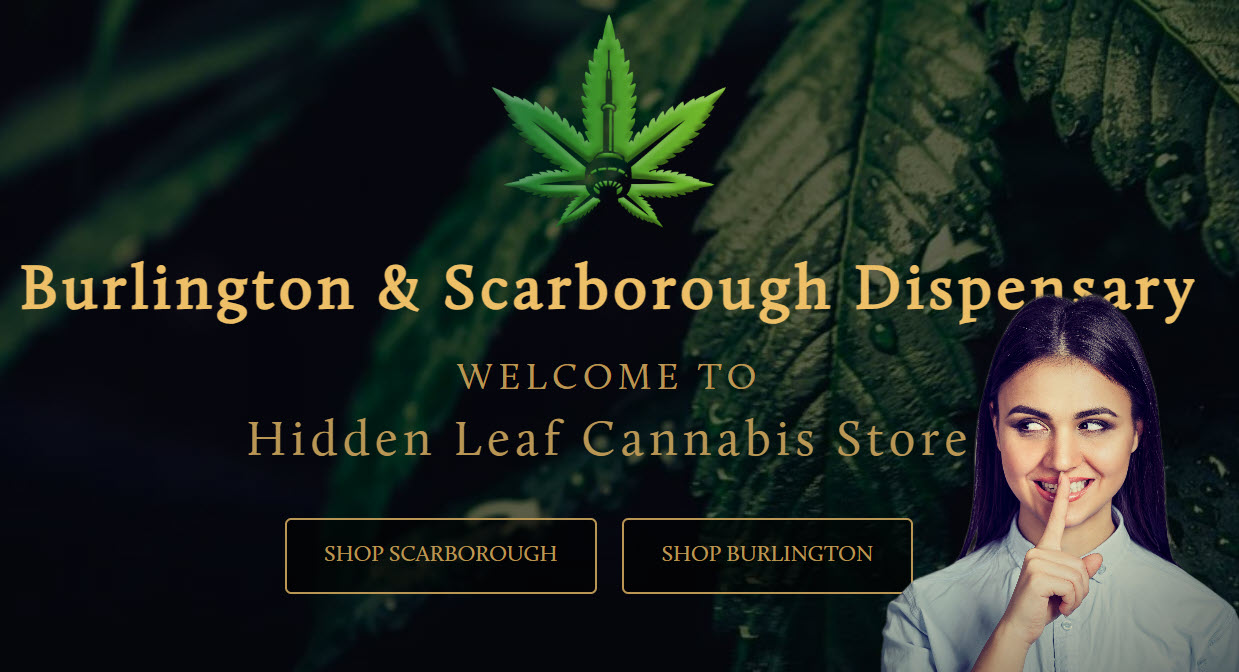
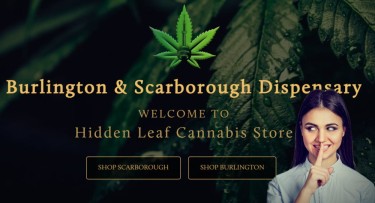
Cannabis.net sat down with Ontario’s hottest cannabis store to find out some of their “secret sauce” that made them the best dispensary in Ontario, Canada.
Q: How did you come up with the name Hidden Leaf for Ontario’s premier cannabis dispensaries?
A: Growing up, I was always a big fan of the anime show Naruto, where the main character grew up in a village called “Hidden Leaf Village.” Naruto’s backstory really resonated with me, inspiring me to name the company Hidden Leaf. As Ontario’s premier Burlington and Scarborough Dispensary, we strive to embody the spirit of community and resilience found in Naruto’s tale.
Q: What makes Hidden Leaf the best dispensary in Scarborough or Burlington?
A: At Hidden Leaf, customer service sets us apart. Unlike many other dispensaries that curate their menu based on profitability, our customers drive our selection. We actively encourage our patrons from both our cannabis store Scarborough and cannabis store Burlington to send in their product recommendations, which we try our best to stock. Plus, we offer the most competitive pricing, making cannabis affordable for everyone. Our commitment to these principles makes us stand out in the Scarborough dispensary and Burlington dispensary markets.
Q: How did you first get into the Canadian cannabis market? What made you take the leap of faith?
A: From a young age, I’ve always wanted to own a business and had a passion for the cannabis industry, learning to grow plants and understanding the different types of concentrates. Taking the risk to enter the business felt right as it was a great way to expand my knowledge and participate actively in the burgeoning cannabis market in cities like Scarborough and Burlington.
Q: Canada was the first G7 country to legalize weed, what advice would you look back and give your past self? What do you wish you knew then that you know now?
A: Looking back, I wish I had learned more about the cannabis business earlier and entered the industry as soon as it was legalized. Now, understanding the different avenues to enter the cannabis industry, I would definitely consider owning my own grow facility among other ventures. This knowledge would have been invaluable from the start, especially in dynamic markets like those of our Cannabis Store Burlington and other locations.
Q: What are Hidden Leaf’s best strains, or what do customers come back for over and over?
A: Hidden Leaf carries a wide variety of brands and strains to cater to every customer’s needs. From budget-friendly options for those looking to save a few bucks to premium quality strains for the real cannabis connoisseurs, our selection is vast. Customers frequently return for our consistent quality and the breadth of our offerings, including popular cannabis flowers at both our Scarborough and Burlington locations.
Q: What has been the biggest challenges in setting up a cannabis business in Canada?
A: The biggest challenge has been finding the right location. Despite legalization, there’s still a stigma around cannabis with many landlords, making it hard to lease properties for cannabis businesses. Additionally, the market is quite saturated with many retailers opening up, so it’s crucial to choose strategic locations for our dispensaries to avoid excessive competition, particularly in areas served by our Scarborough dispensary and cannabis store Burlington.
Q: What do you think about the future of cannabis beverages?
A: The future of cannabis beverages and edibles is very promising. Many people who are new to cannabis are not fans of smoking, so THC beverages and edibles offer a fantastic alternative. These products are expected to attract a new wave of consumers looking to explore cannabis in a more familiar and accessible form.
Q: What is the best way for people to find out more about us or visit us? Website? Social media?
A: The best way for customers to find out more about Hidden Leaf is through our website. It’s the go-to place to find the closest location, whether that’s our Scarborough dispensary or cannabis store Burlington, and to explore our menu and pricing. Our website is a comprehensive resource for anyone interested in our products and services.
Q: If someone is trying to decide which dispensary to go to in Ontario, why should they go to Hidden Leaf?
A: At Hidden Leaf, it’s all about customer service and pricing. We don’t believe in upselling; instead, our goal is to find the best product within your budget. Our customers help shape our menus with their recommendations, which we order in every week. With very competitive pricing, we believe cannabis should be affordable for everyone, making our Burlington and Scarborough Dispensary the go-to choice for quality cannabis products and genuine customer care.
Cannabis News
Are You Bored So You Smoke Weed or Do You Smoke Marijuana and Get Bored?
Published
2 days agoon
May 17, 2024By
admin

Cannabis and Boredom
Boredom is a universal human experience characterized by a lack of interest, motivation, or engagement in one’s current activities. It is a state of mind that can leave individuals feeling restless, apathetic, and dissatisfied.
But why do people get bored?
Research suggests that boredom serves a vital function within the life of the individual, acting as a signal that one’s current situation is unfulfilling and that change is needed.
Boredom can be a catalyst for personal growth and development. When faced with monotony, the mind yearns for stimulation and seeks out new experiences.
This innate drive pushes individuals to explore new hobbies, learn new skills, and challenge themselves in ways that promote self-improvement. In this sense, boredom can be seen as a motivational force that encourages people to break free from stagnation and pursue meaningful goals.
However, in today’s fast-paced, instant-gratification society, many individuals struggle with the discomfort of boredom and seek quick fixes to alleviate its symptoms.
A recent Reddit post posed the question, “Do you use cannabis to escape boredom, or does cannabis make you content with being bored?” This query highlights a common trend among cannabis users who turn to the substance as a means of coping with idle moments.
In this article, we will explore the concept of “escaping boredom” through cannabis use and examine the potential pitfalls of relying on the substance as a sole means of entertainment.
We will also delve into the function of boredom within the life of the individual and discuss how cannabis, when used mindfully, can be a tool for enhancing focus and productivity rather than a mere distraction from tedium.
Boredom, often perceived as a negative emotional state, has been the subject of numerous studies that highlight its potential benefits for personal growth. A study conducted by Mann and Cadman (2014) found that engaging in boring tasks can stimulate creativity and problem-solving abilities. The researchers suggest that when the mind is not occupied with external stimuli, it tends to wander and generate novel ideas.
Similarly, Gasper and Middlewood (2014) discovered that boredom can lead to increased motivation and goal-directed behavior, as individuals seek to alleviate the unpleasant state by pursuing meaningful activities.
However, boredom can become toxic when it is chronic or excessive. Prolonged periods of boredom have been linked to negative outcomes such as depression, anxiety, and substance abuse (Eastwood et al., 2012).
When individuals lack the skills or resources to cope with boredom in a constructive manner, they may turn to maladaptive behaviors as a means of escape. This can create a vicious cycle where the temporary relief provided by these behaviors reinforces their continued use, leading to further disengagement from life’s challenges and opportunities.
So, what’s the secret to never being bored? The answer lies in cultivating a curious and engaged mindset. Individuals who approach life with a sense of wonder and a desire to learn are less likely to experience boredom, as they find joy and meaning in even the most mundane tasks.
By setting goals, pursuing hobbies, and seeking out new experiences, one can maintain a sense of purpose and fulfillment that keeps boredom at bay.
As a regular cannabis smoker myself, I can attest to the fact that it is possible to lead a stimulating and engaging life while still enjoying the benefits of the plant. In the next segment, I will share my personal secret for using cannabis as a tool for enhancing focus and creativity rather than as a means of escaping boredom.
By mindfully integrating cannabis into a balanced and purposeful lifestyle, individuals can harness its potential for personal growth and avoid falling into the trap of chronic boredom.
As a seasoned cannabis enthusiast, I’ve come to understand that the key to overcoming boredom lies not in escaping it, but in embracing it.
The first step is to recognize that the anxiety associated with boredom is not inherently negative. Instead, it is an opportunity for self-reflection and growth. By becoming comfortable with boredom, you open yourself up to new possibilities and experiences.
One of the most common mistakes that stoners make is relying solely on cannabis for entertainment. While cannabis can certainly enhance many activities, it is essential to find something to pursue that isn’t related to smoking.
This requires honest introspection and a willingness to explore your interests and passions. Take the time to reflect on what truly excites and motivates you, and don’t be afraid to step outside your comfort zone.
When pursuing new activities, it’s crucial to focus on the process rather than the outcome. In our fast-paced, instant-gratification society, we often fixate on the end result and lose sight of the joy found in the journey itself.
By falling in love with the process of doing, you can find fulfillment and satisfaction in the present moment, regardless of the ultimate outcome. The goal should serve as a guiding light, but the real magic happens in the day-to-day efforts you put forth.
Once you discover an activity that genuinely captivates you, cannabis can become a tool for enhancing the experience rather than a means of escaping boredom. When you’re engaged in something you love, smoking cannabis can heighten your focus, creativity, and enjoyment without hindering your productivity.
If you find yourself frequently bored and turning to cannabis as a crutch, take a step back and ask yourself, “What would I really like to be doing right now?” Allow your mind to explore various possibilities and jot down any ideas that come to mind.
From this list, identify an activity that isn’t passive or cannabis-related, and make a conscious effort to dedicate your “bored” moments to pursuing this interest.
As you begin to focus on this newfound passion, you’ll notice that cannabis no longer serves as an escape from boredom but rather as a complement to your engaging pursuits. You’ll find yourself sparking a joint and diving into your work with renewed enthusiasm and focus.
Remember, the key to beating boredom as a stoner lies in embracing it as an opportunity for self-discovery and personal growth. By finding something you truly love and immersing yourself in the process, you can transform those once-dreaded moments of boredom into a catalyst for a more fulfilling and satisfying life.
As we conclude this exploration of cannabis and boredom, it’s essential to acknowledge that the temptation to use cannabis as an escape from boredom is understandable, particularly for young people who are still discovering their identity and purpose in life.
In a world that moves at breakneck speed, it’s easy to fall into the trap of seeking instant gratification and quick fixes for even the most mundane tasks.
However, it’s crucial to recognize that the fast-paced nature of our society has transformed our minds into dopamine-addicted entities, constantly craving the next hit of excitement or stimulation. This mindset can lead to a vicious cycle of unfulfillment and dissatisfaction, as we become increasingly reliant on external sources of pleasure to combat boredom.
The key to breaking free from this cycle lies in embracing difficulty and challenging ourselves to grow. By engaging in activities that push us beyond our comfort zones and require us to learn new skills, we can cultivate a sense of achievement and fulfillment that goes beyond fleeting moments of pleasure.
This process of overcoming obstacles and mastering new abilities reinforces our motivation to continue pursuing personal growth and development.
Ultimately, boredom is a weapon that can be wielded for good or ill, depending on how we choose to frame it. Rather than allowing boredom to dominate our lives or turning to cannabis as a means of escape, we must learn to harness its power and mold it into a tool for positive change. By embracing boredom as an opportunity for self-reflection, exploration, and growth, we can transform those moments of restlessness into catalysts for personal transformation.
So, to all the cannabis enthusiasts out there, I encourage you to view boredom not as an enemy to be vanquished but as an ally in your quest for a more fulfilling and purposeful life. Don’t let cannabis become a crutch that holds you back from reaching your full potential. Instead, use it as a tool to enhance your experiences and complement your passions.
Armed with this newfound perspective, go forth into the world with confidence and determination. Embrace the challenges that come your way, and use them as stepping stones to greatness.
Let boredom be your guide, leading you towards a life filled with meaning, purpose, and endless possibilities. And when you do choose to indulge in cannabis, do so not as an escape from reality but as a celebration of the incredible journey you’re on.
In the end, the sticky bottom line is this: Life is too short to be bored. So light up that joint, kick some ass, and take some names along the way. The world is yours for the taking, and with the right mindset, there’s nothing you can’t achieve.
STONED AND BORED, READ ON…
WOULD YOU RATHER… THE GAME TO PLAY WHEN YOU ARE STONED AND BORED!

Is Your Kid Smoking or Vaping Weed?

Press Release: PsychedelicNewsWire Named Official Media Sponsor of the 4th Annual Psychedelic Therapeutics and Drug Development Conference

Memorial Day’s best weed, prerolls, carts, and more 2024

Naps Done Right Can Make a Huge Difference

Michigan is selling more cannabis, but retailers are taking in less money

Can Marijuana Give A Break From All The Drama

Consumer Spending Validates Marijuana Rescheduling

How Did Hidden Leaf Cannabis Become the Leader of the Ontario Marijuana Market?

Are You Bored So You Smoke Weed or Do You Smoke Marijuana and Get Bored?

Cannabis Rescheduling Takes The Next Steps

Distressed Cannabis Business Takeaways – Canna Law Blog™

United States: Alex Malyshev And Melinda Fellner Discuss The Intersection Of Tax And Cannabis In New Video Series – Part VI: Licensing (Video)

Drug Testing for Marijuana – The Joint Blog

What you Need to Know

Cannabis, alcohol firm SNDL loses CA$372.4 million in 2022

NCIA Write About Their Equity Scholarship Program

City Of Oakland Issues RFP For Employee Training Programs

It has been a wild news week – here’s how CBD and weed can help you relax

A new April 20 cannabis contest includes a $40,000 purse

UArizona launches online cannabis compliance online course
Trending
-

 Cannabis News1 year ago
Cannabis News1 year agoDistressed Cannabis Business Takeaways – Canna Law Blog™
-

 One-Hit Wonders1 year ago
One-Hit Wonders1 year agoUnited States: Alex Malyshev And Melinda Fellner Discuss The Intersection Of Tax And Cannabis In New Video Series – Part VI: Licensing (Video)
-

 drug testing5 months ago
drug testing5 months agoDrug Testing for Marijuana – The Joint Blog
-

 Cannabis 1011 year ago
Cannabis 1011 year agoWhat you Need to Know
-

 Marijuana Business Daily1 year ago
Marijuana Business Daily1 year agoCannabis, alcohol firm SNDL loses CA$372.4 million in 2022
-

 Education1 year ago
Education1 year agoNCIA Write About Their Equity Scholarship Program
-

 Education1 year ago
Education1 year agoCity Of Oakland Issues RFP For Employee Training Programs
-

 Cannabis1 year ago
Cannabis1 year agoIt has been a wild news week – here’s how CBD and weed can help you relax



